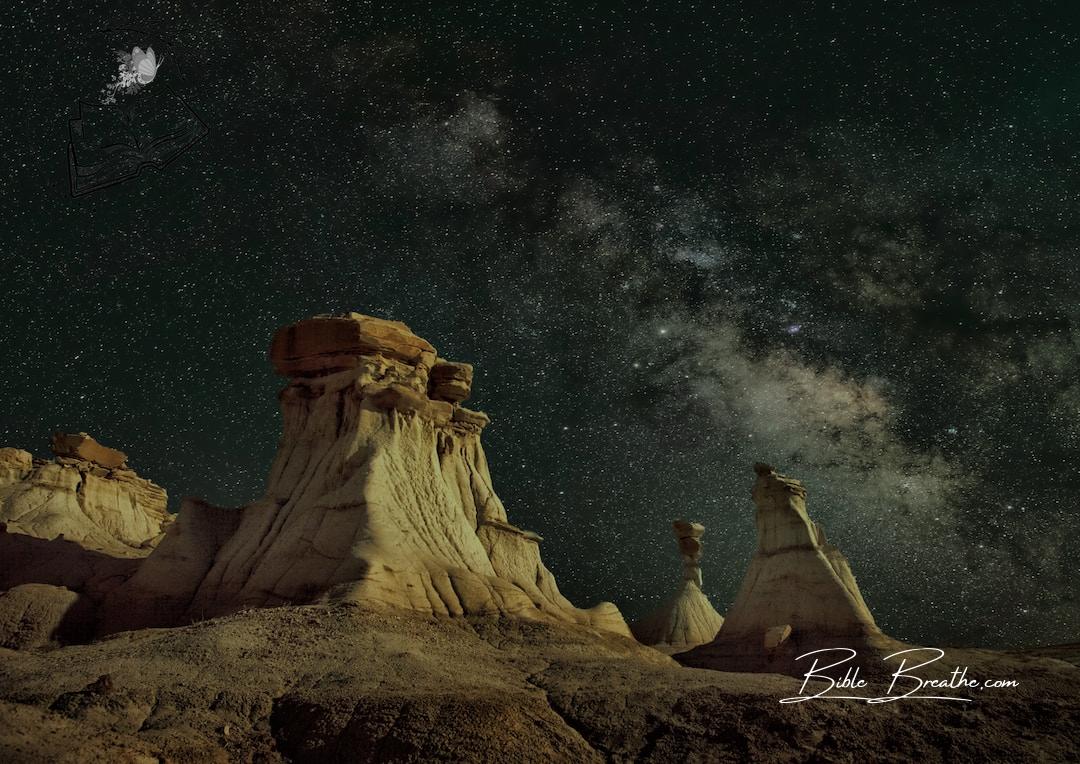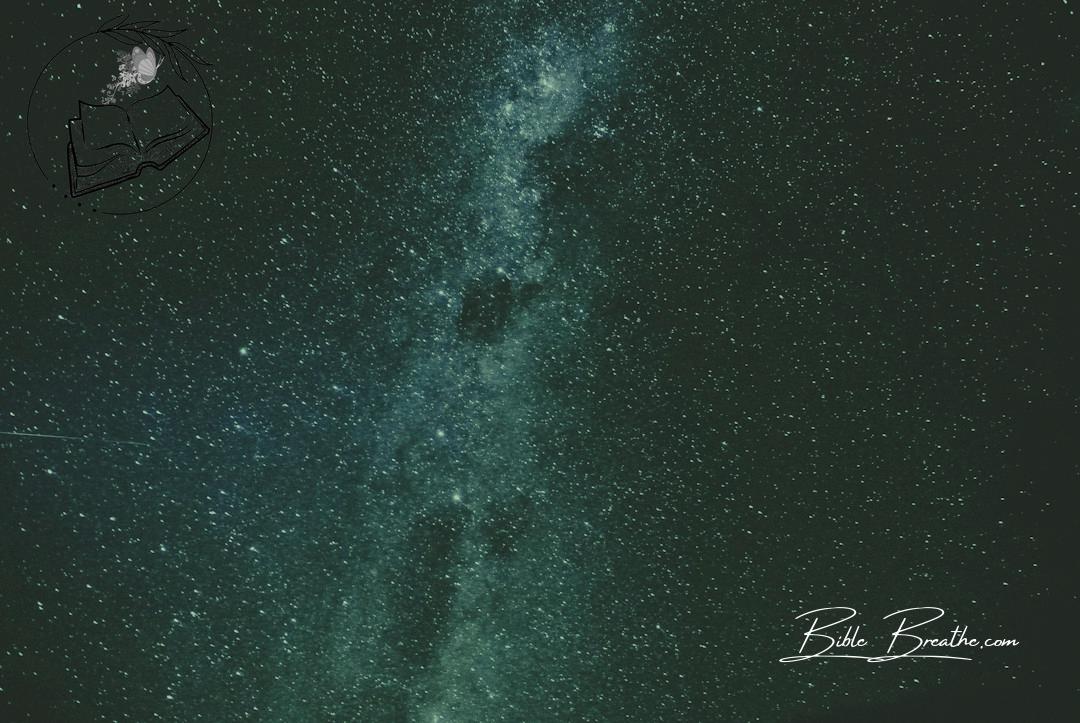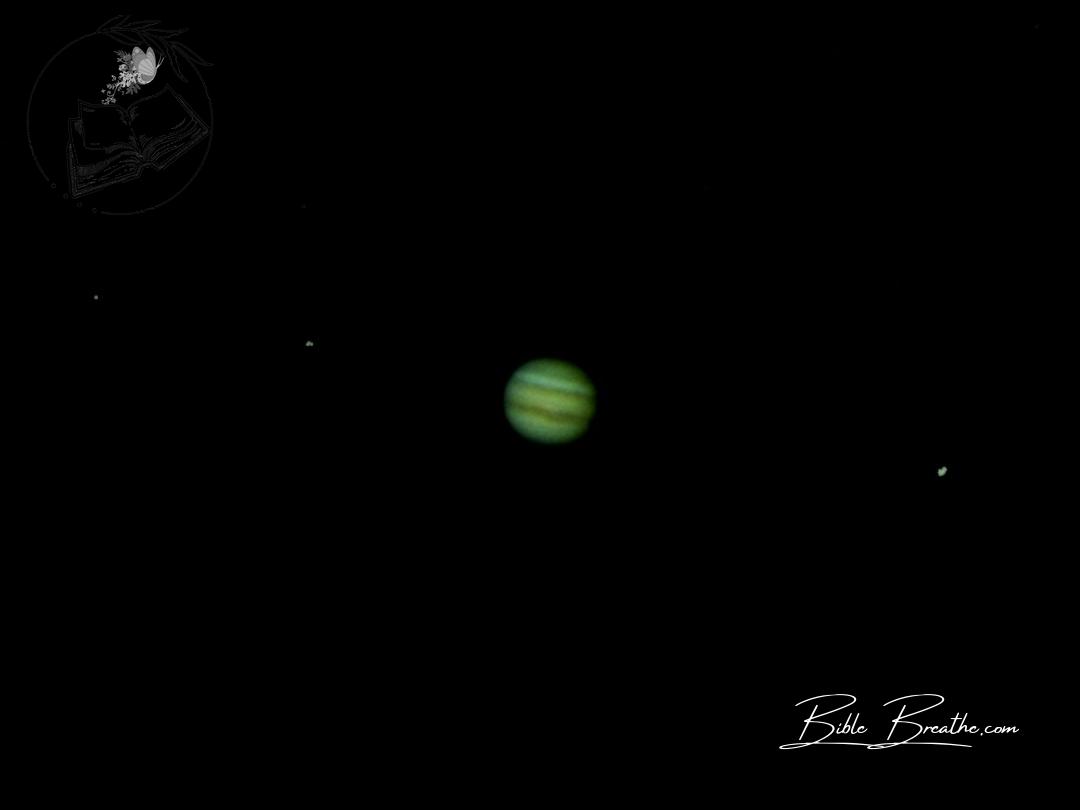Why did God create other planets?
It’s like stargazing on a warm summer night, wondering about the incredible vastness of the universe.
Can you believe it?
God, the Master Artist, painted not just one canvas but a whole gallery of celestial wonders!
Picture this: the universe, a vast playground where God’s creativity knows no bounds.
He’s the grand architect behind the scenes, crafting planets and stars with a divine purpose.
Science tells us about the cosmic dance of planetary formation, while the Bible whispers in our hearts about the wonders hidden in its ancient verses.
Think of Earth as a special gem, uniquely set in the cosmic jewelry box.
It’s like the Creator’s favorite masterpiece.
But what about the others?
Could they hold secrets to life or simply be part of God’s celestial art show?
Join us on this cosmic quest, exploring the mysteries of the universe and God’s divine design.
We’ll uncover the marvels of creation and what it means for our faith journey.
So, are you ready to dive into the cosmic unknown?
🌠📖
Key Takeaways
- Why did God create other planets? This question delves into the vast and mysterious universe, offering room for both religious and scientific perspectives.
- The conditions for life are unique and complex, raising questions about the purpose of celestial bodies beyond Earth.
- Our curiosity about the universe and our place in it is an endless quest, bridging the gap between faith and science as we explore God’s magnificent creation.
Unveiling God’s Stellar Canvas: Why Other Planets Exist
Photo modified by BibleBreathe.com. Original photo by John Fowler on Unsplash
Hey, amazing family!
Have you ever gazed up at the night sky and wondered, “Why did God create all these planets?”
Well, let’s dive into the ancient wisdom of the Bible and unlock the divine insights into this cosmic masterpiece.
The Universe in the Bible: A Divine Brushstroke
In the very beginning, God pulled out His heavenly canvas and started painting.
Genesis 1:1 (KJV) drops the bombshell:
“In the beginning God created the heaven and the earth.”
Boom!
God kicked off His masterpiece, creating the heavens and our beautiful Earth.
Though the Bible doesn’t spill all the tea on how each planet was crafted, it shouts loud and clear that God is the ultimate Artist.
Planets: God’s Celestial Symphony
Picture this: the planets, stars, and galaxies are like the notes on God’s grand musical score.
Each planet has its unique melody, and when they come together, it’s a heavenly symphony.
The universe, including all these planets, is a declaration of God’s majesty and artistic genius.
As we ponder other planets, we’re essentially listening to God’s remix of creation.
While the Bible doesn’t give us the exact beats, it invites us to dance in wonder at the creative beats of the cosmos.
While the specifics might be a mystery, one thing’s for sure: other planets are God’s way of showing off His creativity and skills.
They’re like the icing on the cake of His divine artistry, reminding us that God’s creativity knows no bounds.
Let’s groove with gratitude, marveling at God’s galactic playlist and acknowledging the awesomeness of His creative ingenuity.
The existence of other planets?
It’s a stellar reminder that God is the ultimate Artist, and we’re part of His cosmic masterpiece.
Next time you’re stargazing, remember, God’s the DJ, and He’s spinning the tunes of the cosmos just for you! 🌌🎶
Why in the World Did God Create Other Planets?
Photo modified by BibleBreathe.com. Original photo by Erriko Boccia on Unsplash
Hey there, fam!
We’re about to take a deep dive into one of the most profound questions: why did the good Lord create other planets?
It’s like trying to solve a cosmic riddle, and I’m here to break it down for you with both a scientific and a spiritual twist.
The Cosmic Symphony: How Planets Form and Their Role in God’s Masterpiece
Let’s kick things off with a little cosmic dance, shall we?
Imagine the universe as God’s magnificent canvas, and planets are His brushstrokes.
He painted the skies with these celestial wonders, and each one has a unique part to play in the grand scheme of things.
These planets aren’t just random space rocks, my friends.
They’re like the instruments in God’s cosmic orchestra, each playing its own tune in perfect harmony.
From the colossal gas giants to the solid ground of Earth, God’s artistry shines through in their diversity.
“In the beginning, God created the heaven and the earth.” – Genesis 1:1 (KJV)
Now, you might be wondering, what’s the deal with all these planets?
Well, hang tight, we’re about to uncover the secrets.
Water: The Divine Elixir and the Cosmic Connection
Now, let’s talk about water, a gift from the Almighty.
It’s not just any liquid; it’s the elixir of life itself.
Water isn’t just for quenching your physical thirst; it’s a symbol of God’s provision and His way of nurturing life, both here on Earth and, who knows, maybe elsewhere in the cosmos.
Picture it like this: God’s got a master plan, and water is His secret ingredient.
It’s the key to life as we know it, and it’s no coincidence that Earth is soaked in this divine substance.
It’s a sign of His grace, a sign that He’s got a plan, a purpose, and a narrative that we’re still unfolding.
“For I will pour water upon him that is thirsty, and floods upon the dry ground.” – Isaiah 44:3 (KJV)
Now, as we venture into the scientific theories and mysteries of the cosmos, remember this: God is the ultimate storyteller.
The question of life beyond our planet is like turning the pages of a cosmic adventure novel.
It’s God’s way of inviting us to explore His incredible creation.
As we ponder the wonders of these planets, embrace the scientific and spiritual blend, and remember, there’s so much more to discover in God’s cosmic masterpiece.
It’s a journey of faith, curiosity, and wonder that connects us with the divine.
Stay tuned, fam, because this cosmic exploration is just getting started!
🌌🚀✨
Why Did God Sprinkle Stars in the Cosmic Sky? Deuterium’s Role in the Creation Story
Photo modified by BibleBreathe.com. Original photo by Xavier Mouton Photographie on Unsplash
As we journey through the cosmos, gazing at the stars that twinkle like heavenly diamonds, one question often comes to mind: “Why did God make all those other planets?
It’s like flipping through God’s cosmic art gallery, wondering what He had in mind when He created each celestial masterpiece.
In this section, we’re diving deep into the cosmic kitchen to understand the secret sauce called deuterium and how it spices up the recipe of life.
Deuterium: God’s Special Ingredient
Deuterium isn’t just any cosmic seasoning; it’s the secret sauce of creation.
Think of it like the spice that makes a dish extraordinary.
When we ask why God made other planets, we uncover a hidden recipe in the universe, and deuterium is a star ingredient.
Now, deuterium isn’t spread evenly throughout the cosmos.
It’s like God’s unique paint strokes, making every corner of the universe distinct.
It’s these variations in deuterium levels that decide which planets get to host the grand party of life and which remain cosmic deserts.
This isn’t random; it’s the artistry of the Divine.
Earth’s Perfect Blend
Let’s talk about home sweet home: Earth.
It’s right in the cosmic sweet spot, with just the right amount of deuterium.
It’s like God was a master chef crafting a dish with precise ingredients.
Not too much deuterium, not too little – just the perfect blend.
This is what sets Earth apart, making it a thriving hub for life.
God’s plan wasn’t haphazard; it was intentional.
He gave us an atmosphere, hydrosphere, and biosphere that groove together in harmony.
Deuterium is the unsung hero in this cosmic symphony, ensuring that the stage is set for life to flourish.
So, when you look up at the night sky, remember that those stars aren’t just cosmic glitter.
They’re part of God’s grand story.
Deuterium, like an unseen conductor, guides the celestial orchestra, creating conditions for life’s dance.
The next time you ask why God scattered stars across the cosmic stage, remember that each star, planet, and element in the universe is a character in God’s story.
Deuterium, in its celestial ballet, reminds us that our existence is part of a masterpiece written by the Creator Himself.
“In the beginning, God created the heavens and the earth.” – Genesis 1:1 (KJV)*
The Cosmic Mystery: Why Did God Craft Other Planets?
Photo modified by BibleBreathe.com. Original photo by Aleks Dahlberg on Unsplash
Hey there, fam!
It’s PASTOR MICHAEL TODD, and today, we’re diving into a topic that’s as vast as the cosmos itself – why did God create other planets?
It’s like trying to solve a puzzle with pieces scattered across the universe.
Let’s get our cosmic thinking caps on and explore the wonders of the heavenly bodies.
The Great Galactic Debate: Life Beyond Earth
Now, picture this: on a clear night, you look up to the sky and see a starry spectacle.
But beyond the shimmering stars, there’s a burning question on our minds – is there life out there, beyond our home sweet home, Earth?
This is a topic that gets scientists, thinkers, and dreamers all fired up.
We’re like detectives trying to crack the cosmic case.
In the endless expanse of the universe, we’re a tiny speck in the grand scheme.
With countless galaxies, each packed with planets, the chances of life elsewhere start looking pretty good.
But where does God fit into this cosmic jigsaw?
God’s Cosmic Blueprint: The Recipe for Life
Imagine God as the master architect, designing not just Earth but a blueprint for life across the cosmos.
Just as an artist wields a brush to create a masterpiece, God could be crafting planets with the potential for life.
Earth, right in that Goldilocks zone, enjoys the perfect recipe for life to flourish.
We’re talking liquid water, a stable atmosphere, and a nurturing environment – the essential ingredients.
God might just be saying, “Let there be life!”
The divine chef, if you will, creating a menu of planets, each with its unique qualities.
In the cosmic kitchen, the ingredients are complex.
Liquid water, organic molecules, stable orbits, and cosmic radiation protection are all part of God’s recipe.
It’s like preparing a gourmet dish with multiple courses, and each planet might have its own unique flavor.
Unraveling the Divine Tapestry
So, why did God create other planets?
To understand this cosmic masterpiece, think of it as a grand tapestry.
Earth is just one thread in this intricate design.
Each planet, with its unique characteristics, plays a specific role in God’s grand story of creation.
Think of it like different chapters in a captivating book.
Each planet unfolds its own story, revealing wonders and mysteries.
Or they might be celestial signposts in the vast cosmic highway, guiding us to the unknown.
The answer to why God created other planets is like a breathtaking novel with every chapter waiting to be explored.
As we look up at the stars and ponder the infinite possibilities, we can’t help but marvel at the boundless creativity of the Creator and the divine purpose behind each celestial body.
“In the beginning God created the heaven and the earth.” – Genesis 1:1 (KJV)*
“The heavens declare the glory of God; and the firmament sheweth his handywork.” – Psalm 19:1 (KJV)*
So, keep stargazing, keep wondering, and remember that the cosmos is a canvas painted by the ultimate Artist, and each planet is a stroke of His cosmic brush.
What a masterpiece!
🌌🎨✨
The Divine Marvel: How Planets and Cells Are God’s Artistry
Photo modified by BibleBreathe.com. Original photo by Michael on Unsplash
The story of creation is an awe-inspiring tale penned by the hand of the Almighty.
Imagine it like a cosmic canvas, and we’re about to dive into the strokes that make up the grand masterpiece—how planets and cells, big and small, are part of this divine narrative.
Akin Structures: Planets and Cells – A Symphony of Creation
Now, picture this: planets, those enormous celestial globes, and cells, the tiny building blocks of life, aren’t all that different in the eyes of God.
It’s like seeing the same tune played on different instruments.
The way planets come together mirrors how cells form, orchestrated by the divine conductor.
It’s like the dance of creation, from the vastness of the cosmos to the minuteness within us.
The Almighty’s Blueprint: Understanding Why Planets Abound
So, why did God sprinkle the heavens with other planets?
Let’s break it down.
Earth, our beloved home, is like the lead actor in this divine drama.
It’s where life blooms in a universe that’s mostly barren.
God, the master storyteller, wanted a stage set just right for life to flourish.
The other planets?
Well, they’re like supporting actors, applauding Earth’s unique role and showcasing God’s creative genius.
“For by him were all things created, that are in heaven, and that are in earth, visible and invisible, whether they be thrones, or dominions, or principalities, or powers: all things were created by him, and for him.” – Colossians 1:16 (KJV)
Our Home, Our Blessing: Earth’s Special Place
Ever thought why Earth is just perfect for us?
It’s like a snug glove that fits just right.
Imagine being too close to a blazing fire or too far from its warmth.
Earth’s position in the cosmic theater is just right—neither too hot nor too cold.
It’s where life throws its grandest party.
In this journey of discovery, we’re given a glimpse into God’s grand design.
The question of why God crafted other planets lets us peer into His vast wisdom and His love for His creation.
*Let’s continue to stand in awe of the Creator’s handiwork.
In the vastness of space and the intricate dance of cells, we witness God’s fingerprints—reminders of His glory and His deep love for us.*
Frequently Asked Questions (FAQs) About Why Did God Create Other Planets
Why is the universe so vast?
The vastness of the universe reflects God’s creativity and grandeur.
It’s a testament to His power and majesty, reminding us of our small place in the cosmos.
What does the Bible say about life on other planets?
The Bible doesn’t explicitly address life on other planets.
While focused on humanity’s relationship with God, it doesn’t preclude the existence of life elsewhere.
Interpretations vary; however, focusing on God’s teachings and our role on Earth is fundamental.
(Psalm 19:1, Isaiah 45:18)
How do scientific theories align with religious beliefs about the universe?
The frequency of prayer time isn’t fixed; it’s about consistent communication with God.
Regularly setting aside private time for prayer fosters spiritual growth.
While a ‘prayer closet’ symbolizes a private space for communion with God, the regularity and duration depend on personal conviction and spiritual needs.
{
“@context”: “https://schema.org”,
“@type”: “FAQPage”,
“mainEntity”: [
{
“@type”: “Question”,
“name”: “Why is the universe so vast?”,
“acceptedAnswer”: {
“@type”: “Answer”,
“text”: “The vastness of the universe reflects God’s creativity and grandeur. It’s a testament to His power and majesty, reminding us of our small place in the cosmos.”
}
},
{
“@type”: “Question”,
“name”: “What does the Bible say about life on other planets?”,
“acceptedAnswer”: {
“@type”: “Answer”,
“text”: “The Bible doesn’t explicitly address life on other planets. While focused on humanity’s relationship with God, it doesn’t preclude the existence of life elsewhere. Interpretations vary; however, focusing on God’s teachings and our role on Earth is fundamental. (Psalm 19:1, Isaiah 45:18)”
}
},
{
“@type”: “Question”,
“name”: “How do scientific theories align with religious beliefs about the universe?”,
“acceptedAnswer”: {
“@type”: “Answer”,
“text”: “Scientific theories and religious beliefs can complement each other. Science explains the physical world, while faith addresses spiritual and moral aspects. Understanding scientific theories broadens appreciation for God’s creation, encouraging exploration and deepening awe for His intricate design.”
}
}
]
}






